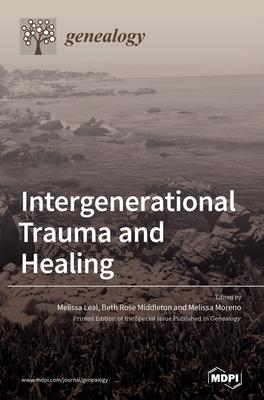This Special Issue of Genealogy explores the topic of "Intergenerational Trauma and Healing". Authors examine the ways in which traumas (individual or group, and affecting humans and non-humans) that occurred in past generations reverberate into the present and how individuals, communities, and nations respond to and address those traumas. Authors also explore contemporary traumas, how they reflect ancestral traumas, and how they are being addressed through drawing on both contemporary and ancestral healing approaches. The articles define trauma broadly, including removal from homelands, ecocide, genocide, sexual or gendered violence, institutionalized and direct racism, incarceration, and exploitation, and across a wide range of spatial (home to nation) and temporal (intergenerational/ancestral and contemporary) scales. Articles also approach healing in an expansive mode, including specific individual healing practices, community-based initiatives, class-action lawsuits, group-wide reparations, health interventions, cultural approaches, and transformative legal or policy decisions. Contributing scholars for this issue are from across disciplines (including ethnic studies, genetics, political science, law, environmental policy, public health, humanities, etc.). They consider trauma and its ramifications alongside diverse mechanisms of healing and/or rearticulating self, community, and nation.

Intergenerational Trauma and Healing
This Special Issue of Genealogy explores the topic of "Intergenerational Trauma and Healing". Authors examine the ways in which traumas (individual or group, and affecting humans and non-humans) that occurred in past generations reverberate into the present and how individuals, communities, and nations respond to and address those traumas. Authors also explore contemporary traumas, how they reflect ancestral traumas, and how they are being addressed through drawing on both contemporary and ancestral healing approaches. The articles define trauma broadly, including removal from homelands, ecocide, genocide, sexual or gendered violence, institutionalized and direct racism, incarceration, and exploitation, and across a wide range of spatial (home to nation) and temporal (intergenerational/ancestral and contemporary) scales. Articles also approach healing in an expansive mode, including specific individual healing practices, community-based initiatives, class-action lawsuits, group-wide reparations, health interventions, cultural approaches, and transformative legal or policy decisions. Contributing scholars for this issue are from across disciplines (including ethnic studies, genetics, political science, law, environmental policy, public health, humanities, etc.). They consider trauma and its ramifications alongside diverse mechanisms of healing and/or rearticulating self, community, and nation.